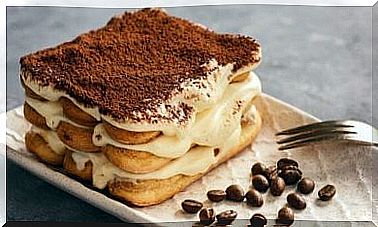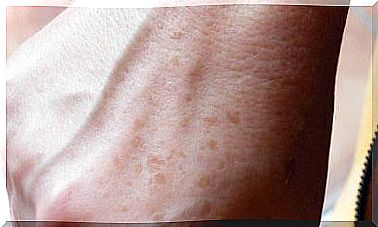Parenting Style: What Kind Of Mother Or Father Am I?
Parenting style refers to how parents react to their children. Doctor of psychology Marcelo Ceberio talks to us here about the different types of parents.

The concept of parenting style refers to relational constructions that involve the behaviors, attitudes, gestures, verbal and paraverbal messages of parents towards their children, as well as the communication strategies and techniques used by them to conscious or unconscious way to develop their children.
No institution teaches parenting. Indeed, we learn to play this role based on the education received. It is a role that is characterized by actions and corrections that we deem to be correct. Our family of origin is therefore our reference model when it comes to raising our children.
However, parents are also a mirror in which children look at themselves : children reflect the parents’ own reflection. Parenting style therefore implies an involuntary transmission of information. Parents are more transparent than they think they are: they transmit values, beliefs, forms of emotional expression, modes of communication, mandates… Let’s see all of this in more detail later in this article.

Parenting Style: What Kind of Father or Mother Am I?
One of the best known parenting style theories is that developed by psychologist Diana Baumrind.
In this theory, there are four categories of parents:
- Bossy: These parents tell their kids exactly what to do
- Permissive: children can do whatever they want
- Democratic: parents share their standards without being dominant
- Negligent: Neglectful parents don’t think about their children, their attention shifts to other areas
Democratic parents
They are balanced parents who maintain open and regular communication. For them, dialogue is the best way to make children improve their understanding.
They are demanding but receptive parents: democratic parents want their children to become independent and mature people. They understand their children’s emotions and show them how to deal with those emotions.
Usually, these parents do not have much control over their children. They can thus live their own experiences with greater freedom and make decisions based on their own ideas.
By supporting children’s personal initiative, democratic parents enable their children to solve everyday problems themselves. This allows children to consolidate their autonomy.
In case of punishment, parents always explain the reasons. Generally, these measures are in no way harsh or arbitrary. Democratic parents forgive: they seek to teach rather than punish. The expected result is the following: the development of good self-esteem and the acquisition of autonomy gradually.
Democratic parents offer clear standards and set limits. They allow their children to develop their independence and expect from them a mature behavior but always in adequacy with their age, namely a behavior in accordance with their evolutionary cycle.
Parenting style: authoritarian parents
They are hyper-demanding, unresponsive parents who expect a lot from their children. They impose a totalitarian regime characterized by high expectations, respect for family standards and very little dialogue between parents and children, especially when it comes to justifying an order.
Strict parents punish their children when they disobey. They want children to respect the work and effort they put into their education.
They do not facilitate dialogue and they sometimes even reject it as a disciplinary measure. For example: “As long as you have not done what I tell you, do not speak to me any more.” The reason “because I ask you” is usually the only explanation given by this type of parent.
Bossy parents are less sensitive to their children’s needs and tend to hit or yell at their children rather than discuss the problem. Children who receive this type of education may have less social skills because they have not learned to make choices on their own.
Authoritarian parents exercise discipline without granting any autonomy to their children. They consider obedience to be a virtue, which is why they favor punishment and force.
Permissive parents
Permissive parents are very sensitive to the child’s needs and wants. They have low expectations of their children. These parents are very involved in their children’s lives, but have very few demands and very little control. The absence of limits deprives children of acquiring skills related to self-control.
The children of permissive parents are generally immature: they do not control their impulses and have not integrated the notion of responsibility. They therefore tend to be impulsive and, during adolescence, it is possible that they adopt marginal behaviors. Children of permissive parents never learn to control their behavior, and they always hope to get out of trouble.

Parenting Style: Careless Parents
These parents are neither demanding nor flexible. They don’t get very involved. It is distant parents who control their children. They do not set limits and do not encourage them to take their responsibilities.
Careless parents tend to overlook their children’s emotions and opinions. They do not support them much, moreover, but they meet their basic needs (food, shelter, education). They are often absent emotionally, and sometimes even physically. This means that they may be physically present, parents and children do not communicate.
These parents are not or cannot be sensitive to the needs of their children. They do not expect anything from them in terms of behavior. Those who have grown up and lived in a neglectful environment can suffer from emotional and behavioral problems as adults.
The lack of affection causes very negative effects on the development of the child. The latter lacks confidence, devalues himself and is dependent. He therefore encounters difficulties when it comes to socializing, and his tolerance for frustration is very low.
Specific typologies of parenting style
In my work with adolescents, I have noticed a series of parenting peculiarities when it comes to talking to fathers and mothers. Based on Baumrind’s typology, I synthetically identified some parental typologies.
However, you have to keep in mind that there is no such thing as a pure parenting style: quite often we are faced with combinations that give parenting a special twist. Indeed, there are parents:
- Guilty: These parents set limits and feel guilty. They seek to be recognized and loved by their children. With a “no” they run the risk of being rejected.
- Demanding: these parents stimulate their children with the possibilities of each in mind. They value them and motivate them.
- Hyper-demanding: they always focus on failures. They do not value what has been done but what has not been done. It is an implicit way of devaluing someone.
- Authoritarian: they are dictators who do not explain the reason for their limits and their orders. They don’t care what their children’s wishes are, they think they know what’s best for them.
- Who limit in due time: these are parents who set effective, clear, flexible and understandable limits.
- Super devoted: these parents believe that meeting all the needs and desires of their children guarantees their good development.
- Permissive unlimited : these are parents who set no limits. They tend to give in to the authority of their own children.
- Seekers: These parents need the affection and recognition of their children. They seek to please their children in order to feel valued. They believe that home is the best place for their children.
- Overprotective: These parents take extreme care of their children and therefore do not encourage independence. They are simply afraid of what might happen to them. They act and do things for them.
- Protectors: These are the parents who transfer their frustrated desires to their children, namely those things that they could not achieve at a younger age. They don’t listen to their children’s wishes.
- Donors: these parents guide their children. They give them advice, but they also give them the freedom to make their own way. The material goods they give serve as stepping stones towards independence. They know how to let their children go.
- Almighty: These parents can do it all. They give their children everything they need, even more. They are convinced that this is the best way to be parents. Salary, car …
- Communicators: their priority is communication. Explaining everything is important. They don’t pressure their children, they respect their own timing. They ask rather than assume.
- Liberators: these parents encourage freedom and independence. They almost evict their children, but without realizing the real emotional possibilities and the real maturity of their children.
- Valorizers: These parents nourish their children emotionally. They express their affection and self-esteem through words, deeds and attitude.
Dangerous combinations
Some parenting style combinations are dangerous:
- Liberating and all-powerful parents: not only do they stimulate freedom without measure but they give everything to their children without letting them grow. For example, they give them an apartment so that they can live on their own, but they take care of the expenses. Their attitude is contradictory: they push them towards independence but satisfy all their needs.
- The good and the bad: there is a controlling parent and another culprit. The authoritarian parent sets extreme, rigid limits and punishes. The guilty parent protects and justifies the actions of his child. This triangle favors the coalition.
- Permissive culprits: they set no limits and, if so, they feel guilty. They eventually become the children of their own children. In short, the hierarchy is reversed: children dominate parents, and parents are therefore submissive.
- Hyper-demanding protectors: Not only do they ignore their children’s desires, aspirations and skills, they are also hyper-demanding. They focus on whatever goes wrong based on their own parameters. If these parents are also authoritarian, the family situation becomes even more alarming.
A nourishing and functional parenthood is one that promotes growth, autonomy, communication, emotional expressions and sets clear limits. It therefore combines the following characteristics: empowering fathers and mothers + affective donors + productive demands + timely limiters + communicators.
Far from the utopia of ideal parenting and close to healthy and functional parenting, exercising a good parenting style is a daily learning when it comes to accomplishing the beautiful mission of being a parent.









